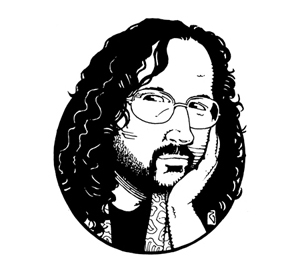BY A COMPLEX web of universal cause-and-effect relationships, a book landed in my mailbox last week. Was it karma? Well, since I asked for it, I guess it was. I have never met Kevin Griffin, but I was already blown away by his first book, One Breath at a Time, still the definitive tome successfully melding the wisdom of that dead guy called Buddha with the teachings of addiction-recovery programs.
You don’t have to be on any given “step” to dig the goods. Of course, it helps if you’re half-Eastern and already have the tendency to look within for all the reactions, but One Breath at a Time brings the teachings of the Buddha—meditation, mindfulness, the Hindrances, the Eightfold Path, etc.—and intertwines them with those certain 12 steps of many recovery programs.
And that was just Griffin’s first book. Last week, his new one arrived directly from the source. A Burning Desire: Dharma God and the Path of Recovery (Hay House, $14.95) was written to address specifically the frustration many agnostics and atheists have with the God issue in recovery programs.
Now, this is a touchy subject, but someone has to do it, so here goes: Griffin’s insight is that the Dharma, the teachings of the Buddha, can be understood as a higher power, one that can serve the same purpose as God does in 12-Step Programs. For example, there are particular chapters on the “Higher Powers” of Karma, Mindfulness, Wisdom, Love, the Eightfold Path, Faith, Presence, Spiritual Awakening and the Group.
According to Griffin, if you’re in a recovery program and having difficulty conceptualizing how you would “turn your will and life over” to something else, you can do what in Buddhist traditions is called taking Refuge in the Buddha, the Dharma and the Sangha—that is, the Awakened dude, his teachings and his community. You don’t have to formally become a Buddhist, but this entire book tells you how to use the Buddha’s teachings as the “power greater than yourself” on which many recovery programs are based.
Most importantly, and just like Griffin’s first book, this is not a recipe for bailing on your current recovery program, if you’re already in one. It’s not an “out” for you to avoid doing the work your program suggests. Rather, I would say that Griffin’s insight provides a much-needed vitamin and supplement package for those already in recovery from addiction, or for those whose anxiety over the “higher power” issue is preventing them from further investigation into recovery programs. Fair enough? I hope so.
The timing is right, because Griffin will be in San Jose on Tuesday, Jan. 19. He will lead a meditation and discussion at the regular Tuesday-night Dharma and Recovery meeting organized by the San Jose Dharma Punx, an alternative Buddhist crew inspired by the Noah Levine book of the same name. These folks have their own story, at where I will now briefly finish.
Levine was a Santa Cruzer whose punk-rock youth in the ’80s threw him headfirst into drugs, alcohol and self-destruction before he got clean and started a new Buddhist meditation society called Against the Stream. The Dharma Punx groups are essentially his protégés, with chapters now located across North America.
The San Jose group concentrates on straight-up Buddhist practice, and a separate meeting related to addiction recovery takes place every Tuesday in the basement of St. Francis Episcopal Church at Pine and Newport streets in Willow Glen. All are welcome, and no prior meditation or experience at Buddhist practice is required. You don’t need to have spent your youth getting tanked at Black Flag riots; people of all ages and persuasions attend.
According to those involved, no attempt is made to convert anyone from their current paths—you do not need to divorce the god you already have. The intent is to have a deeper spiritual experience tied to your own recovery. The organizer calls it “the raddest thing ever.” What more could you want? For info, email: sj**********@***oo.com. Kevin Griffin’s website is: www.kevingriffin.net.



